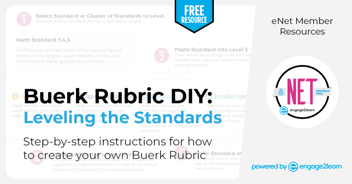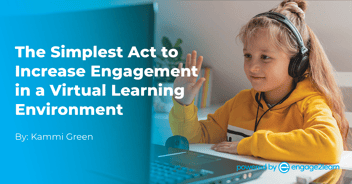Learning Should be Real not “Real” | engage2learn
When I ask teachers what their ideal classroom looks like, they all respond with the same answer, “In an ideal classroom, my students are 100% engaged and excited about their learning.” I believe teachers strongly want this type of learning environment for their students, but oftentimes are genuinely unaware of how to make it happen.
Through coaching, I have had the privilege of partnering with teachers to set up systems that have led to authentic learning. We have seen the transformational power that adding an authentic audience to standard objectives can have. Teachers have shared how their struggling readers move up several reading levels because they really want to research how to help animals in their local animal shelter. Middle school teachers have shared how partnering with community colleges has increased engagement in their classroom with students creating study guides for adults to pass the entrance exams.
Authentic Experiences for the Win!
I like to explain it to teachers this way. If I ask you to learn how to knit and tell you that I will be back in a week to quiz you to make sure you learned it, how likely are you to do this? They all say that they would not do it, and some say they’d learn the bare minimum just to get by! Then, I ask them: What if I told you that the NICU at the local hospital has preemie babies who are in need of knit caps. I’d like you to knit a little yarn cap so that we can go to the county hospital and deliver your knit hat to one of those preemie babies. How would your level of learning be different?
The depth of learning that occurs when students are learning to apply that learning to something they are passionate about have an emotional tie to or design on their own goes far beyond the learning that would take place with a hands-on activity or lesson.
This is the type of drive we want to create in the classroom: Real learning for a real reason.
Cultivating Drive in Any Classroom
Many teachers feel overwhelmed by the plethora of programs and instructional strategies they have to implement that they just don’t have the time to find an authentic audience. Sure, it may be a huge leap to partner with your local hospital, but you can start off small.
Do your students need to learn how to divide? Have them create a division game for an upper grade to play. Do they need to learn the Pythagorean Theorem? Have them create study guides for GED students.
Give them a real reason to learn the standards. Ask yourself, “In the real world, who would benefit from the information/content/standard my students need to learn?”
Here are three simple ways to start incorporating authentic audiences in your classroom:
- Start within your own classroom with your own students by grouping students and having them present to each other.
- Partner up with another grade level to provide feedback on their work.
- Ask campus leadership to serve as a panel for students to present ideas.
Adding in an outside accountability piece will get your students engaged and excited to learn. If you don’t believe me, take into account your formal observation. How much preparation goes into preparing for that day versus other days? Why? Outside accountability. It creates a real reason to learn.
Check out this TedTalk for more ideas!



